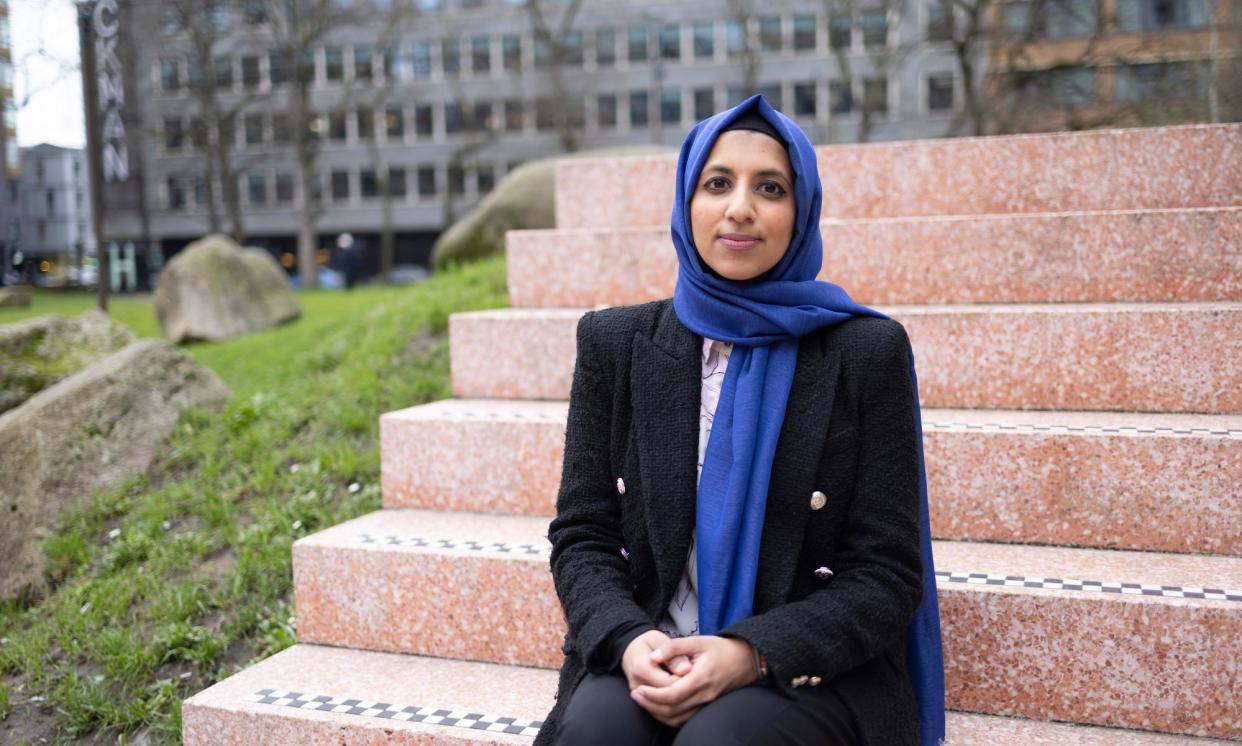‘We’re a political punchbag’: Muslim Council chief baffled by MoD move to cut ties

A couple of months ago, Zara Mohammed, the 33-year-old secretary general of the Muslim Council of Britain (MCB), learned that the Ministry of Defence was ending its 12-year relationship with the organisation.
The MCB, the UK’s largest Muslim umbrella group, with more than 500 affiliated members including mosques, schools and charitable associations, had been acting as a referee for potential imam chaplains in the armed forces.
“There are uniformed chaplains of all faiths and denominations. It’s really wonderful,” says Mohammed. “They would come to us and say, these imams have come forward, are they credible figures in the community? We’d say yes or no.
“They cancelled it because the Daily Telegraph wrote a piece on it. [The MoD] wrote to say the government has said they cannot have any relationship with the Muslim Council of Britain. They didn’t justify it.
“It is barking,” she adds. “There is no replacement. They left a gap because we are the leading Muslim representative body that is trusted, so there is no one.”
Mohammed, the first female leader of the MCB and by far its youngest, has led the organisation since 2021. She is a law and politics graduate from Strathclyde university but the MCB has never paid its secretary general so she offers a consultancy service on diversity issues to pay the bills.
Raised in Glasgow, she is the oldest of four children born to second-generation British Pakistani Muslims – an English-born mother and a Scottish-born father. Her mother wonders why she does what she does, says Mohammed. That nagging question has felt particularly relevant in recent days.
Related: Archbishops of Canterbury and York warn against new extremism definition
The government has for more than a decade had a policy of “non-engagement” with the MCB. The reasons as to why are murky.
A ministerial statement given in the Commons in February had claimed this was because “previous MCB leaders have taken positions that contradict our fundamental values and these have not been explicitly retracted”.
It appeared to be a reference to a row dating back to 2009 when the then deputy secretary general, Daud Abdullah, signed a document known as the Istanbul declaration which advocated attacks on the Royal Navy if it tried to stop arms for Hamas being smuggled into Gaza.
The then Labour government said it would have nothing more to do with the MCB unless Abdullah stepped down and the sentiment was repudiated.
“But this is a bit of a misconception,” says Mohammed. “The MCB did denounce it and said that this was something done by Daud in his personal capacity. He then resigned and the MCB said: ‘We did not endorse that statement.’ Then the Labour government re-engaged with us.”
The current impasse, she says, is a mysterious Conservative government thing, on which it appears to be doubling down. In recent days, the government briefed that several Muslim organisations, potentially including the MCB, could be named as being among those that would be captured by a new definition, of the sort of “extremist” organisation Whitehall must have nothing to do with.
A draft ministerial statement, seen by the Guardian, suggests that Michael Gove was toying with naming the Muslim Association of Britain, Cage International, Muslim Engagement and Development, 5 pillars and the Friends of al-Aqsa (along with the far-right groups Britain First, British National Socialist Movement and the Patriotic Alternative).
“These groups of divisive forces within Muslim communities cause real harm to them,” the levelling up secretary was to tell MPs on Thursday.
It is still to be seen whether Gove will name the organisations, given the potential legal challenge it might provoke. The MCB and the other organisations have been taking legal advice over a possible judicial review of the government’s definition of extremism.
But for Mohammed, it is almost beside the point. “I think we are a very suitable political punchbag and that’s what we’re seeing right now. The Muslim Council of Britain is always being targeted. I think there’s this ongoing theme of demonising Muslims.
“There’s a systemic issue that we are the easy ones to scapegoat in the culture wars. It’s difficult because I’m a new leader and I just don’t think like that, and I question why. What is the problem? Surely engaging with us is a great thing because we represent so many Muslim communities. And if we engage, we can do more work together. But you’re isolating us and marginalising us.”
The MCB helped the NHS give advice to Muslim communities during the Covid pandemic and is seeking to make its affiliated groups more aware of how they can do their bit to address the climate emergency.
But since the 7 October attacks by Hamas in Israel, Mohammed says she has been constantly asked to prove she is not an extremist.
“I don’t represent Hamas, I don’t talk for Hamas. I represent British Muslims in a British organisation,” she says. “In our faith, the killing of any innocent civilians, we condemn. And that’s it. Why would my position be any different from that?”


